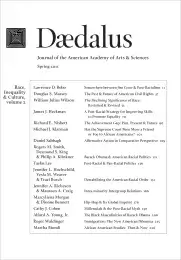The Black Masculinities of Barack Obama: Some Implications for African American Men
Barack Obama’s presidency has stimulated thinking about new possibilities for race relations in America.1 Yet it has also inspired accounts that question whether his election has been overstated as a positive factor for contemporary race relations in this country.2 Indeed, a recent conversation I had with Ronald, an African American man who participated in some of my earlier research,3 confirmed the skepticism of the latter perspective. Ronald and I discussed a number of issues concerning Obama’s election and the possible fate of the African American community before he finally said, “You know, despite the fact that Obama’s election is a change for this country, one thing is the same: everybody whoever held the office of the president was the son of a white woman.”
Ronald’s remarks did not come from frustration or anger. Instead, in a matter-of-fact tone, he simply conveyed his sentiment that what may have seemed like a radical unfolding to some people felt more like a moderate shift to him (and possibly others). Since that talk with Ronald, I have been pondering the potential shifts in the meanings of race in America around the time of Obama’s election. That Obama, like every other president of the United States, is both male and the son of a Caucasian woman has led me to think specifically about how race and masculinity converge in African American men’s views of Obama, a self-proclaimed black man who is, yet is not, like many African American men. More specifically, I was . . .
